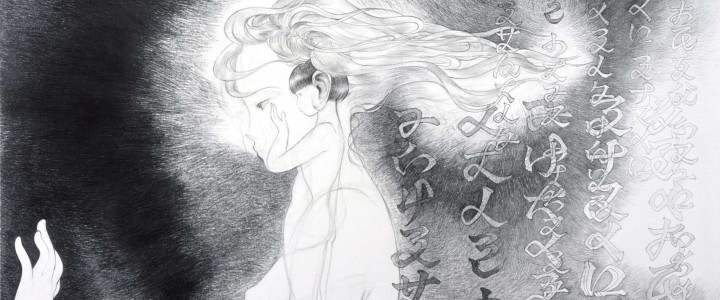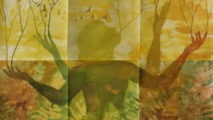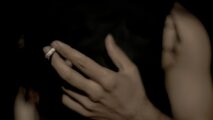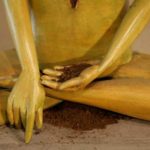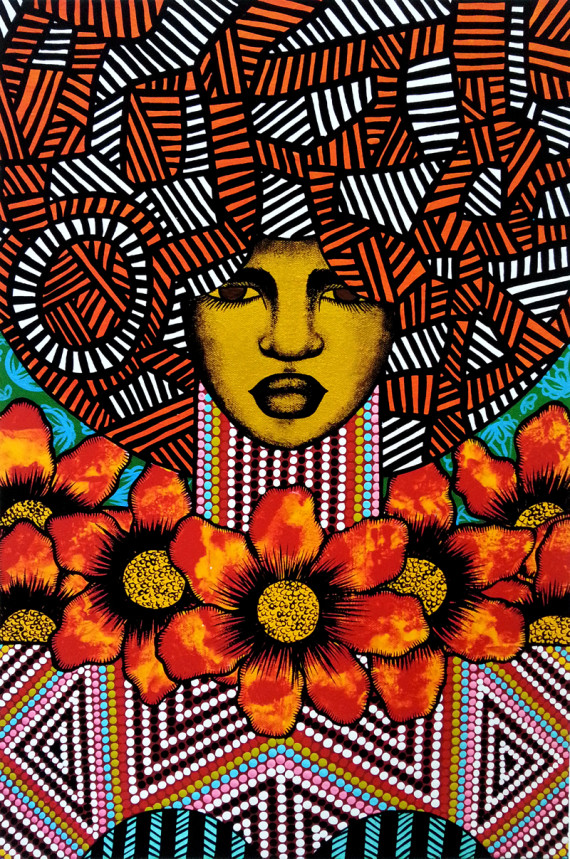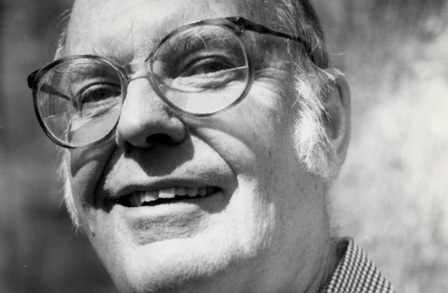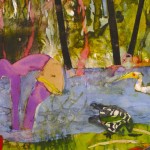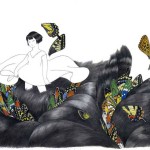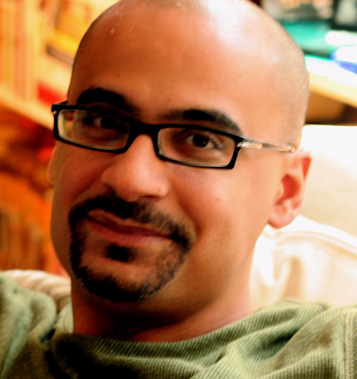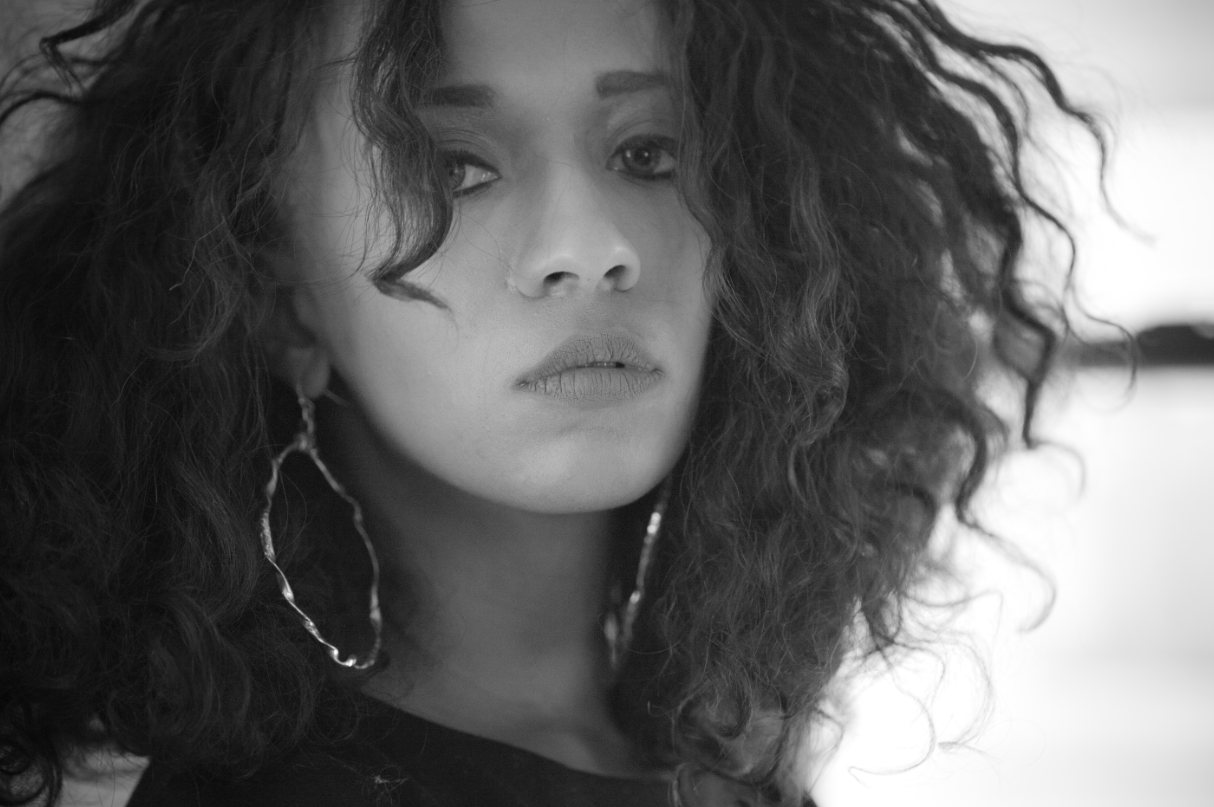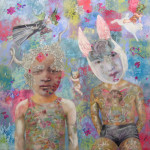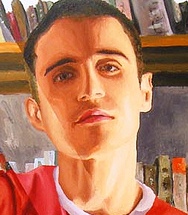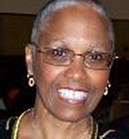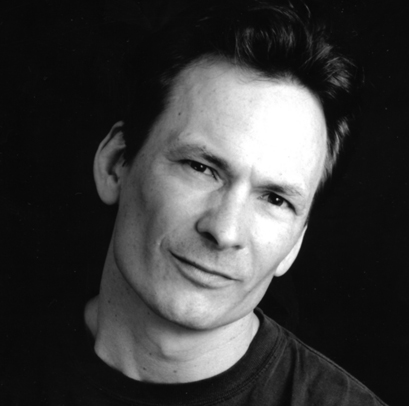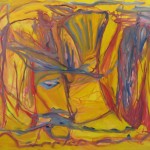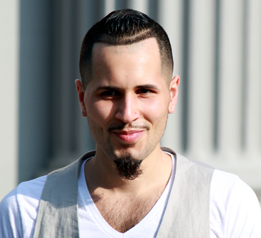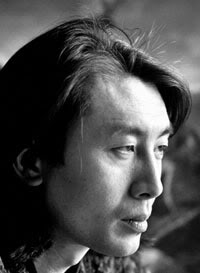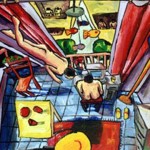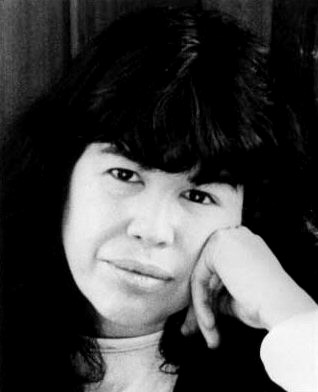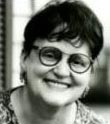She’s a grandmother with no grandchildren; both she and her sister Viv have become the
childless grandmothers of the town. That’s how she thinks of herself these days, and then
wonders, with a small dismay, how did this happen?
Some Sundays after the local church lets out a gaggle of neighbor children come to visit
Evie and her older sister Viv. She always has to have ginger snaps and lemonade stocked and
ready for the occasion, as though every Sunday is Halloween. A well-meaning Sunday school
teacher stands behind this gang as they congregate in the living room and put their dirty sneakers
on the rug, and Evie is supposed to be delighted with the whole affair, just smile and tap her cane
and rock back and forth, addled and beaming. On these days she knows she doesn’t miss having
grandchildren much. Other people’s, anyway, she can take or leave.
Viv always loves the visitors, though. She strides into the room waving a silk scarf like an
old starlet, settles down in the only comfortable chair and begins to tell her stories. She can
always talk; there is always something more to say, or the same thing to say over. There are the
stories of when they were both children in the plains of Kansas and had to wear bandannas over
their noses and mouths to school, to protect against the dust storms. The dark tornado cellar
they had to hustle into at a moment’s notice. Evie remembers that too, the darkness, her
mother’s hand clutching her around the waist, the roaring outside, desolate as a ghost trying to
get in. But it’s Viv who wants to tell. She talks about their father and the teams of mules he
drove all his life, so that when they finally moved to New York and rode in a car he said,
“Whoah, whoah,” when he hit the brakes. The little children laugh at this. Their small sticky cough-syrup hands grip their sneakers, rolling on the floor.
If the teacher brings her older class of pre-teens, Viv tells them about when they moved
to the big city and she led a glamorous life acting in off-broadway plays. How she’d almost been
discovered, if she hadn’t left the show’s after-party that night to have a drink with her future
husband. Everyone smiles. The school teacher, a young woman with a large hat brim hiding her
face, clasps her hands to her chest.
Through the stories Evie nods and smiles. Backs up her sister even as the tales get taller
through the years. Now it isn’t some unknown playwright who liked her, it was Orson Welles and
he wanted her for Citizen Kane. Well, let her talk. Evie holds a small knowing smile tucked into
her mouth like a nut she’s saving for winter.
After these sessions the Sunday school teacher shoos the children away and stays behind
to help tidy the kitchen. Evie sits at the table and lets her work, enjoying the way she moves
swiftly about the kitchen, the clean easy jerk of her arms on the garbage bag. So easy.
She carries it outside in two light bounds. Evie hasn’t run in years, can’t remember what it feels like to bounce off one foot onto the other. “The children sure do love your stories,” the teacher says, coming back in.
Viv is in the powder room, so Evie speaks honestly, just this once. “Not really. They’re
bored to tears. But it gives my sister someone to tell her stories to.”
This seems to surprise the teacher. A blush creeps into her cheeks. “I’m sure the children
–”
“Oh, come along.” Evie has never been a patient person when she can help it. She
remembers waiting for her daughter to be born. And in the end, waiting for her to leave again.
Both seemed interminable in their own ways. “Of course they’re bored with us. They should be.
They’ve got better things to do than humor a pair of old biddies.”
The school teacher half smiles under her hat.
*
They’d bought the house only half a decade ago, when they finally decided they couldn’t
live in the city anymore. Now Evie thinks they went too far in the other direction; aside from a
few neighbors on their street, the fields and woods around are deep and unbroken.
Town is only a few streets clustered a mile or so down the road; most days it is too far for her to walk. They should have seen this coming, but somehow they didn’t believe in their own old age. No husband, no children are around to scold, to warn; their own parents died young. The house itself is old and cave dark and has to be lit with floor lamps scattered freely through the rooms.
Sometimes Evie and Viv can’t be bothered going around turning on all the lights and so they
fumble in the dark with their canes like the blind, bumping into old remembered objects (father’s
model ship, mother’s china dogs). They bump into each other, and snap and growl like stranger
dogs. They’ve always fought, as long as either can remember; over small and large things, over
burnt toast and career goals, over why won’t you get married, over leave me alone.
Then they’re quiet, as the evening light knits the shadows together, and they can think
about the people who are gone, the growing holes, the way they stretch and fill the inner space of
their bodies.
She knows this is going down a new road on which age has routed them; another few
steps and they’ll be crazy, once and for all. And this young teacher, the one who sees them
regularly — she’ll probably be the one to report them to the county. Evie’s up nights thinking
about it sometimes. Viv comes back into the kitchen. “I hope the children enjoyed themselves.” A little
shimmy of her hips. “They’re always welcome.”
“I’ll remember that,” says the Sunday school teacher. She gets up to go. Viv watches, a
desperation that Evie knows growing in her eyes. “Won’t you stay a while? Have a late lunch
with us?”
“I’d better be going.”
Viv sits heavily at the kitchen table and lets her scarf fall into her lap. She takes to the
grandmother role like every other role she’s played: with delight, with drama, with a little too
much hamminess. On Sundays she wears the special dresses she never let the moths get. She
tints her white hair with bluing the way their own grandmother did. She wears too much
makeup, too much perfume. For years she has bragged how wearing sunscreen every day of her
life has prevented her skin from sagging, but Evie can’t see much difference between the two of
them. Viv’s lips are too thin; her skin is translucent, and doesn’t match the shock of blush. Her
skin, brittle and cracked like crumpled paper.
Either way, this is Viv’s latest role: grandmother. The sweating pitcher of juice, the
warmed plate of cookies, are always waiting and ready.
Maybe today she is thinking about what the house will feel like when it is just them again.
She sits up straighter. “You know, Evie can talk to ghosts.”
Evie says, “Viv!” sharply, but her sister’s eyes are bright, unrepentant.
The Sunday school teacher turns. Evie expects her to frown, to disapprove. She’s from
the church, after all. Don’t those fire-and-brimstone types think ghosts are all witchcraft and
devil-worship? But the teacher is leaning forward. “How do you talk to them?” she asks.
“I–”
“In her sleep,” Viv prompts. “When she sleeps, dead people come and tell her things.”
“Viv, enough.” Evie pushes back from the table with an angry snort. Humiliated enough
for one day. Her sister has never shared this before with strangers and it feels like betrayal. “She
makes me sound crazy. I just dream about people sometimes the way we all do.”
“That’s not what you told me,” Viv insists.
The teacher is quiet. “Is it someone you know?”
“Well — yes.”
She taps a finger to her chin. “If they ask you a question, don’t answer it,” she says.
“Ask them one back. Ghosts can be tricky. They can try to fool you. You have to fool them.”
Evie laughs. It’s funny, a joke; the teacher is humoring her, poor doddering old fool. But
the laugh peters out at the table. Something dark and non-reflective is in the teacher’s eyes,
something she can’t laugh at.
And Viv is right. They aren’t dreams at all. She’s sure of it.
*
At night when they have turned off the late show and the woods are black in the window
and Evie is reminded how very far out they are, and Viv has retired to her own room, Evie’s
daughter comes and sits on the end of the bed. That is her customary spot. She never comes
closer, as if they have just had a fight and she’s waiting to see if they’re made up. And Evie never
comes closer, either, because she is afraid of scaring her away.
“How are you?” Evie always asks. Her daughter looks young and strong again, her long
brown hair full and glossy in the dark, her cheeks filled out. Not sunken and wasted the way she
was in the last months of her life.
“I’m all right,” her daughter says. “I’m all right. It’s difficult, you know. But I’m
learning.”
The only sounds in the darkness are crickets and Viv’s soft whistling snore.
This time her daughter is restless. “Do you remember when you said goodbye to me?”
her daughter asks. “Why did you say that? I was so frightened and that only made it worse.”
Evie suddenly remembers the school teacher’s warning. Ghosts could pull you in. “What
are you learning?” she counters. “What do you have to learn?”
“Will you come with me, and tell me why you frightened me?” her daughter asks.
“Why did you have to go?” Evie asks. “It was going to be the two of us. Always. Now
I’m stuck with Viv.”
Her daughter smiles in an absent-minded way. It always seems like she’s only half there,
like she is waiting for a train and her mind is already on the journey.
“Are you all right now? Do you hurt anymore?” Evie asks her urgently, sensing she is
about to go.
Her daughter doesn’t answer. Just half-smiles. Her head tilted, the long curtain of hair
falling into shadow. Like a young girl again. Beautiful. Then she gets up and walks away. Evie
remains awake for a long time afterward, listening for her.
*
“It’s not ghosts,” she tells Viv in the morning. “It’s a ghost. It’s only the one. You make
me sound batty.”
“Obviously just the one. She’s your one.” Viv is uninterested in the details. They are
cleaning the house the way they always do on Monday. With Viv’s bad knees and Evie’s bad hip
it is a slow process. It ends up taking most of the week, and then they are around the bend to
Monday again. Still, they prefer it to letting a stranger try to clean. Only they know how to
navigate the knickknacks and cluttered furniture, the forest of standing lamps. Look how many
useless things you acquire in your life, Evie thinks, passing the duster through the vases jammed
on a dresser. It’s not even the things you buy yourself; it’s the things your parents leave you, and
the things that their parents left them. It gets to be a burden, the weight of all these things. She
imagines the house, burning to the ground. A tragedy, of course. But to be left with nothing — to
be only you again, not all the things, all the people you were supposed to carry with you — the
thought sweeps her up and she’s lost, thinking about it, until Viv yells at her to keep sweeping.
“If someone came to talk to me, it would be George,” says Viv, swinging her broom like a
dance partner. “I wonder why he doesn’t come to me. I talk to him, sometimes, but he never
answers.”
“It’s been a long time.” Viv married George after a three-week courtship in 1944. Then
George was killed in action in the Philippines. Viv was a young and beautiful widow. She really
was as beautiful as she likes to claim. Everyone expected her to marry again; it was only a matter
of time. The cars of young boys were always parked outside her chic little apartment when Evie
came to visit.
But she never did. She continued to live there alone, carrying a series of tiny dogs in
purses out every day, for decades. She became a fixture at the local coffee shops and playhouses,
with her bouffant hair, sunglasses, her little leopard-spotted coats. The New York Times wrote a
townie story about her. Eventually, when Evie’s daughter died in her fifties, the two of them
bought the country house together.
“I say, ‘George, it’s about time we reconciled. Who are you going to shack up with in
heaven if not me?'” Viv is saying, raising dust with short, vicious strokes of her broom.
“‘You’ll never forgive him for going off and dying,” says Evie. “He knows it. That’s why
he stays away.”
Viv pauses and her eyes narrow like when she’s about to say something mean. “And you
and June? You’ll never forgive her, will you.”
Evie is silent. The name of her daughter is enough to still something in her, to quiet her
deep down. She has always found it hard to speak. When she was young she didn’t talk until she
was four; her parents feared she was simple. But it was always better to listen, to let others tell
their stories. Particularly talking about herself. Best to keep that quiet. Finally she says, “I don’t
know.”
*
She remembers playing with tarot decks with her sister when they were girls. Always fighting over them, the way they fought over everything. This way. No, this way. It’s my turn to play the card. No, mine. You dummy.
Once their father brought them a bag of smooth, polished multi-colored stones and a
little manual that he had bought in Chinatown. This is how they talk to spirits in the Orient, he
told them. Very ancient, powerful magic. He was always bringing them things he considered
exotic: South American masks and dried puffer fish, engraved chopsticks.
Maybe it was that strangeness that made them seem special. The Chinese characters that
filled the little booklet seemed like spell-speech. They shook the bag and tossed the stones with
great seriousness. This was going to tell them their future, or help them speak to the other world
they had always suspected lay beneath theirs.
The stones fell and rolled across the little sitting room. Now they checked the booklet.
One is special and one is not, the book told them. The red stone and the black stone.
Each time, one is speaking, the other is silent.
The red stone fell in front of Evie, the black closer to Viv. But they couldn’t tell which
stone was special, which was speaking. The manual wouldn’t say. “It’s the black one,” said Viv,
and Evie agreed. Viv was the speaker, after all. She loved to sing and perform.
But though she didn’t say anything, Evie still secretly thought, What if it’s the red?
*
On Tuesday, Wednesday, Thursday, Evie sweeps. Back and forth across the porch the way her
mother, her grandmother used to drift across the old Kansas porch like a ceaseless tide.
This is the realm of grandmothers, of mothers; this is what we do, she says to herself. From the porch she can watch the road, see three tidy little neighbor houses tucked into the trees. When a wind blows the treetops ruffle like a hand moving through hair. Sometimes in the woods behind the house she can see deer moving, flickering through the dense summer green. There’s a neighbor
who moves through the forest, collecting wild mint and sage. She sees him swinging a machete sometimes to get through the thick ground cover. To her it’s all just green: she can’t name a
single tree or flower. All a mystery. She says to herself, to June, Why did I come here? What are you learning?
In the city, though, she knew her way. She loved being a city woman. She and June were
out every day walking the streets, whether they had somewhere to go or not. After her work
clerking at a law office and after June was out of school they would find themselves at a flea
market touching the squares of silk, the dusty frames of old paintings. Smelling the hot garbage
smell of New York, the sweet-sour cloy of other bodies pressing against them in the subway. The
painful roar of the train cars, the smell of street stand curry. She loved it all. She sucked it in
greedily. June, too, in her quiet, solemn way, breathing in the ugly spice of the city. When she
was very young, they’d hold hands, and share a secret signal, stroking each other’s palms with a
finger.
Viv sits on the porch, watching Evie sweep and telling her stories. The time that I skinnydipped
in Bethesda fountain. The time George and I went for a carriage ride and the horse ran
away with us. The time I saw Betty Davis coming out of the Plaza. Have I told you about the
time I–? “Yes, I remember,” says Evie. “That was quite a time.”
Viv laughs, slaps her knee thin and bony as a wrought-iron railing. “Oh, we were wild
then!”
“Lift your feet, so I can sweep under you,” says Evie.
Viv narrows her eyes. “You were always so dreamy. Always your head up in the clouds.
Even now you’re far away, aren’t you.”
Evie pauses in her sweeping. But she doesn’t have time to answer; someone is coming up
the walk, and it’s too early for the mailman. Viv’s eyes are better and she figures it out first.
“Well look who it is!” she cries. The Sunday school teacher is climbing the steps, pulling her long
skirts up.
“What brings you here?” Viv asks. Evie is quiet, but feels a strange quickening of her
breath. The Sunday School teacher raises her straw hat; underneath her hair is long and loose,
not in its usual bun. Suddenly she is young, younger than Evie has ever realized.
“I just came to return this to you, and apologize,” she says. She is holding a small ceramic
horse that belonged to Evie’s daughter. “Henry seems to have slipped it into his pocket during
our last visit.”
“Goodness.” Evie straightens, leans the broom against a wall. “I hadn’t even missed it.”
She takes the little horse, turning it over and over in her hands.
“Greedy little thief !” exclaims Viv from her chair. “I hope he’s getting punished.”
“Yes, certainly. I’m very sorry about that.” The teacher looks to the sky, as if waiting for
God to add his approval, a roll of thunder perhaps. But the sky is blue and untroubled. “I was
wondering also — if you were still having ghost trouble, Evie.”
She looks behind her; Viv is grinning, getting ready to laugh. “It’s nothing. Just bad
dreams. When you get old, you get them.”
Her sister gets up, snatches the little horse from her hands. “Give me that. I know where
it goes.”
When she enters the house, the school teacher presses Evie’s hands in her own. Her eyes
are once again strangely dark; Evie can’t see herself in them. “Come to our meeting,” she says.
“It’s tonight. We want to see you there.” And, lowering her voice, “Come and be free of your
burdens. You need to lighten the load.” She is pressing a card into Evie’s palm.
“Thank you, but I’ve had enough religion for one lifetime.” She can imagine the sad
conglomeration of characters that turn up for Friday night Bible study.
But the woman winks at her. Turns, waves, and walks on down the road.
Evie turns the card in her hand. It is not for Bible study. The society for Ghosts, Phantoms,
and Otherworldly Phenomena, it reads in old-timey curling script. Support, outreach, communication.
*
At night the darkness blossoms and the crickets lean in close. Night in the country is a
warm heavy blanket on her skin. When she goes walking sometimes in the evening, she can feel
the trees long after she can’t see them anymore, like they have become pillars in her mind,
memories she no longer has.
She remembers running through the trees with her daughter, when they were both young.
That was when they used to get a summer house in upstate New York, not much different from
this one. Then the lightning bugs lit their way but only for a time, and then they ran, panting
and stumbling in the dark, laughing and chasing. She never knew what her daughter was
chasing, only knew she had to stay with her, had to follow her through the trees. She could hear
her shouts ahead. She was young then and her body still felt like a fresh rubber band, still warm
and loose and under her control. She ran and laughed and chased she-didn’t-know-what and felt
quite certain that the two of them would get there, would find it, very soon.
Viv is in a bad mood tonight. She can tell Evie has been getting more attention from the
school teacher. Never in their lives could she abide that. She won’t help with dinner, snaps that
the chicken is too dry, complains about her aching knees. As Evie rubs them she watches with
her narrowed-eye gaze. “You’re hoping I kick off pretty soon, aren’t you,” she says finally.
“That’s crazy.”
“You can be honest with me. We’re sisters, after all.”
“I am being honest.”
“I held you as a baby, you know that? I’m tired of you forgetting. I took care of you.”
“I haven’t forgotten.” But inside her, annoyance is churning her stomach, turning it in
slow flops.
Viv won’t break her stare. “It’s something. Something you’re feeling. What is it?”
“What’s what?”
“I know you. And tonight you’re different. You’re excited about something.”
“Maybe I am.” And she tells Viv there is a contemporary poetry reading at the library
tonight. Nothing special. She knows Viv hates any poetry newer than Wordsworth (“Too
abstract! Too post-modern!”). But it seems to satisfy Viv. She nods. “One of these days I’ll
crack open that T.S. Eliot and try again.” Her voice is gentle now, and Evie rubs her knee more
slowly. Viv puts a hand on her sister’s, to stop her. “That’s good. You are kind.”
Evie stops. For a while they sit together and watch the sky lose its light, slowly. This is the
time of quiet for both of them. Then Viv says something Evie has never heard before.
“You know, when George died,” she says, “I tried to kill myself.”
“What?”
“You heard me. I went to the drugstore and got one of those half-gallon jugs of aspirin.
But it was so difficult. I swallowed and swallowed but there were too many pills. By the time I
was halfway through they started coming up again. I lay on my bathroom floor for a long time
and I waited, but nothing happened. I was just sick. I thought when I was strong enough to get
up I’d go get something stiffer at the drugstore and this time I’d do it. But you came to the door,
Ev.”
Evie is silent; she holds still, stunned to hear a story she hasn’t before.
“I don’t know if you remember, but you had come to take me out to lunch. I could see
you on the stoop from my bathroom window. I got up and washed my face, locked away the
mess in the bathroom and went out. I remember we had watercress on our sandwiches that day.
You told me how sorry you were about George. We laughed about his big ears. Then I went
home and threw the pills away.”
Viv holds her sister’s hand. There is no more to the story.
By nine that night she has a ride into town from a neighbor. I can walk back, she tells the
neighbor. And in truth, riding along the straight country road, watching it rear up to meet the
headlights, she feels like she could walk for miles. This spiritualist meeting, this seance or
whatever it is, is ridiculous. She knows it is. But the Sunday school teacher reminds Evie of her
daughter and this is the first time she’s gone out sans-Viv in years. She’s perched on the edge of
the car seat the whole way, hands clutching her purse, eyes on the road, waiting for the little town
to emerge with its haloes of streetlight.
In the basement of the rec center, where the alcoholics usually meet, the school teacher
greets her with a smile. “We’ve been waiting for you,” she says. “Come in, come in.” She ushers
Evie into a dim room with coffee and creamer on a side table, chairs in a circle. And people are
fidgeting — people she doesn’t know, but they must be locals. Their clothes, their knotty hands
look that way. Two old men with overalls. A woman with a floral skirt and matching headscarf.
A young man with bad acne and a nervous, shifting gaze. More adults, not counting her
neighbors, than she’s seen in a long time. More old people, especially.
The school teacher rings a small bell. “The Society of those haunted by otherworldly
phenomena is now in session. We have a new member today. Let’s all welcome Evie.”
“Hi, Evie,” goes the chorus.
“Now let’s show Evie how these meetings are typically run,” says the teacher. Her voice
has risen to an instinctive teacherly register: kindly but firm. “Albert, why don’t you begin.”
One of the men in overalls stands up. “Hi, my name is Albert. I’ve been haunted by my
brother ever since he died in a car accident seven years ago.”
Evie waits for someone to laugh, to shift in his chair. But they are all rapt, all friends here.
Albert goes on. “I saw him off the night he died. Knew he was drunk but laughed it off.
Sandy, you’re liable to go right off the road I said. We were both laughing. Drove off and that’s exactly what he did. And now he won’t shut up about it.”
Now a little ripple of laughter fills the room. “He blames me,” says Albert. “When I’m
driving alone at night, he sits in the passenger seat and asks why I didn’t stop him. I tell him, you
and me are both idiots. Would you have stopped me if the shoe was on the other foot? But he’s
still mad. He tries to get me to run off the road. Tries to take me with him.”
He sits, and a woman squeezes his shoulder. “Thank you, Albert,” says the teacher.
“Let’s hear from someone else.”
So they go: one by one, telling their stories. A woman who lost her friend. Now the
friend looks in the kitchen window while she’s cooking. The boy who lost his father. They still
play catch sometimes in the evenings. The storyteller is not always responsible for the death, and
the visitor is not always hostile. But always they are there. Always they want something. They
pull, they plead, they question. They will not leave.
Finally Evie can’t be silent anymore. She bursts out, “These aren’t — ghosts. Not real
ghosts. These are psychological problems. We just — we’re dreaming it up. We can’t let the
person go, so our minds don’t.”
She’s expecting angry stares. Frantic denials. But the circle around her is calm. “You can
call it whatever you like,” says the Sunday school teacher. “You can think of it as all in your head
or just a dream. It doesn’t make one lick of difference. It doesn’t change the way the dead speak
to us. The way they’ll never let us alone. They want us to join them.”
“So go on,” says someone in the circle. “Your turn. What’s your story?”
She wants to laugh, or maybe just walk out of the room. But the calm acceptance of the
circle has melted her somehow. Maybe just once she will speak. “No story, really. Nothing
special. Just my daughter, and cancer. My only daughter.”
But now the story has begun; now for the first time in years she is telling it to someone
other than Viv. “Everyone thought my sister would be the one to get in trouble. But I was the
one who went to a man’s apartment one night when I was lonely, and I came home pregnant. It
was me. And it was just me and my daughter for a long time. All our lives. She was my child.
And I couldn’t keep her safe. I couldn’t keep her from feeling pain.
“Now she comes and we talk and it’s almost like everything is normal again, like we’re old
friends as we always have been. But sometimes she wants me to go with her. I try to change the
subject. But always she wants to know why she had to leave, and why I had to say goodbye. And
I don’t know. She’s the ghost. Shouldn’t she know why?”
She sits. She’s trembling all over; her heart can’t seem to find a rhythm. Next to her, a
woman rubs her shoulder. A man pats her hair. “They won’t let us alone,” the school teacher
says softly. “And they might never leave us alone. You must be prepared for that. You must be
ready to say goodbye, again and again, for the rest of your life.”
The haunted people speak, in tandem, in pieces. We can’t live this way. We have to fight
them. We can’t let them run our lives.
The meeting adjourns with rueful laughter, pats on the back, keep fighting-the-good-fight
smiles. One day at a time. Then coffee, mini-frosted doughnuts, and applejack in paper cups.
This is not alcoholics anonymous, after all.
Someone puts on music, slow jazz. The society members begin to dance and sway. Evie
has some applejack and finds herself slumped in the arms of Albert, doing a slow cha-cha
around the room. “You’re a marvelous dancer,” he tells her.
“My sister taught me. New York State ballroom finalist 1943,” she says. She remembers
whirling around her sister’s apartment, all the rugs pushed back. Later, she taught June. She
taught her how to lead. In case it’s a party and you want to dance with a girl. There are always
more girls than boys who want to dance. Her clumsy way, of telling her she understood.
At last it’s late; the society members say goodbye. Albert wants to give her a ride, but it’s
out of his way, and she would rather walk. She needs the time to clear her head, to figure out
what to tell Viv where she’s been.
“It’s dark out there,” Albert says. “Take my flashlight. Be safe.” Probably because of
what happened to his brother, she can sense how hard it is for him to say goodbye, to send people
off down the road. She takes the flashlight.
She is not far out of town before she is glad for it. She has forgotten the ink black of
country nights. Her flashlight casts only a silver moon ahead of her on the road.
It’s still. The quiet goes into her. She can hear the rustle of an owl’s wings as he sweeps
overhead. And now he has left. The only sound is her own feet, taking small shuffling
grandmother steps. But she can feel the largeness of the woods beside her. It’s like being in
church: the inside vast as all knowing.
There is a sound coming from the woods. It’s voices. People talking, overlapping, an
unhurried conversation. Who is talking in the woods at night?
Evie steps off the road. There is something strange and too familiar about the voice.
Then there is a laugh, loose and throaty, and she knows it is her daughter’s laugh. She knows it
the way she knows her own, the way she knows herself. And she is already stepping into the
bushes beside the road, pushing her way into the woods.
The little light of the town behind her is immediately lost, sucked away into the trees.
She stumbles and thrashes through bushes, branches, thorns. They’re everywhere, scratching and
clawing, but the voices are getting distant now, moving away, and she pushes on. Her hips are
old, she is old, but she can’t think of the pain now. All she can think about is June, her one ghost,
and all she is now is a running, fleet-footed creature, they both are, deer flying through the woods,
one running, the other chasing, and soon, very soon, she will catch her.
Running this way, her breath on fire, she reaches the clearing.
There is a sudden glare of lamp light, and as she startles just like a deer, a hand comes
out, waving her to a stop. It is not her daughter. It is a man in a t-shirt and overalls who looks
familiar.
“Who are you?” she asks, and he puts a finger to his lips. In the dark she can only see half
his face.
“Quiet, please,” he says. “We’re about to begin. This way.”
Something about his calm, no-nonsense tone inspires obedience. She follows, stumbling
on roots and stones. They are heading for a clearing, where more bobbing lights can be seen.
Now she can hear the voices, quiet and conversational. People are gathering here, sitting on tree
stumps or soft patches of moss, leaning against trees. They quiet as her guide enters the circle
and directs her to a fallen log. The meeting is ready to begin.
She looks around the circle. She doesn’t know any of the people, but they all seem
familiar. So familiar, like she’s met them once long ago. Or she’s heard them described to her.
She says, realizing, “You’re Albert’s brother.”
Her overall-ed guide nods, but is distracted. He has business to attend to. “The society of
otherworldly phenomena is now in session,” he says. “We will now hear stories from anyone who
wants to share. Who has been haunted this week?”
Looking around the circle, Evie sees now that she is surrounded by ghosts. Their bodies
only half reflect the light. Their faces are still and distant. They are really only half there, only a
mental suggestion of people. But they are sad, or anxious. They have burdens, the same way the
living do. Across the circle, she sees her daughter slip into a chair. She rises, but June puts a
finger to her lips, urges her to wait. She sits.
A woman in a floral dress and a country braid stands up. “I’m Rachel, and my friend
Suzannah is haunting me,” she says. “She thinks she’s responsible. Or maybe she can’t imagine
having another friend as close as we were. She’s lonely and she thinks I’m all hers. When she
cooks I have to stand nearby and look at her in the window. Like a real ghost. Ooooh!” She
makes a face and the circle laughs. Then Rachel’s half-there face is serious again. “She won’t let
me go. I fight to leave and she only holds me tighter. I’m just a concept, a memory. By now I
should have dissolved into the air. I should be gone like a decaying particle. But she won’t let
me.”
She sits, and the ghosts murmur sympathetically. Then there are other stories to tell, ones
Evie has heard before: the father whose teenage son still wants to play catch. The mother. Wife.
Husband. All of them have been pulled into existence by their loved ones. The people, the
living ones, have got it all wrong. They are the ones doing the haunting. They’re the ones who
can’t let go. The ghosts know they don’t exist, but it’s the living who won’t let them not exist.
The clearing is full of a great throng of ghosts, all struggling to tell their stories.
Evie can’t help herself. She shouts to Albert’s brother, “But don’t you blame him? For
what happened. That’s why he can’t let you go.”
Albert’s brother shrugs. “How could I blame him? You think I can blame him?” He
holds up his hand to the light. From certain angles it isn’t even there.
Across the way, her daughter gives her half-smile. She doesn’t have to tell her story
tonight. Evie knows it already. She knows she’s the one who can’t, might not ever, let go.
Eventually the meeting adjourns. The ghosts aren’t big on eating and drinking, but they
still like to dance. When you are tired, when you are carrying a heavy burden, when you are an
addict or a victim or haunted by ghosts, there are only two things you can do: either clean, or
dance. Someone puts on Billie Holiday and the ghosts begin to rock and sway. She dances with
Albert’s brother. Nearby, with another partner she sees George, George killed in action in the
Philippines, go waltzing by. He nods to her.
“Can I tell Albert you don’t blame him?” she asks. “That he can let you go?”
“That depends,” he says.
“On what?”
“On whether you see him again.”
She feels suddenly cold. She raises her hand but can barely see it. Of course, how could
she have been invited to this meeting? Is she dead already? Hit by a car on the dark road,
perhaps? Stroke or heart attack from the long walk down the road, from the long lifetime of
eating pats of butter like candy? Is she only a concept now, an idea in someone else’s head? Is
that the only reason she can still feel and hear and see — because someone is remembering her?
She looks around her quickly. Dark trees, birch trunks silver under the moon. Sweet smell of
sap. Crickets carrying on. All of it is suddenly dear.
“Aren’t you glad?” she asks Albert’s brother. “Aren’t you glad someone is remembering
you? So you can still be here? Smell the air? Feel clothes on your skin? Scratch an itch?
Dance?”
For all his half-gone, distracted look, she’s surprised him. “I never thought about it that
way.”
“And when Albert is gone, you’ll go out like a candle,” she says, matter-of-factly. “So why
not enjoy it?”
She suddenly wonders why she is here at all. What’s holding on to her, what refuses to let
her go. The world, with all its smells and sounds, still pulls her. But also, of course: Viv. In the
dark house, even in her deep snoring sleep, Viv is lighting a candle for her. Viv refuses to let her
go. It is just like the night she came home from sleeping with the man she’d never see again; she
went to Viv’s place. And weeks later, when she knew she was pregnant, and that her parents’
door would never take her again: Viv took her.
Now, Viv will keep her and her daughter safe. For a little while longer, they’ll cling,
holding onto the tendrils of memory in her sister’s brain. And when she dies, it will be all of
them who go, the last remaining pieces of themselves seeping into the air and the earth like dye
into water. But not yet.
Her daughter is waiting for her across the clearing. “You taught me how to lead. We can
dance.” So they do.
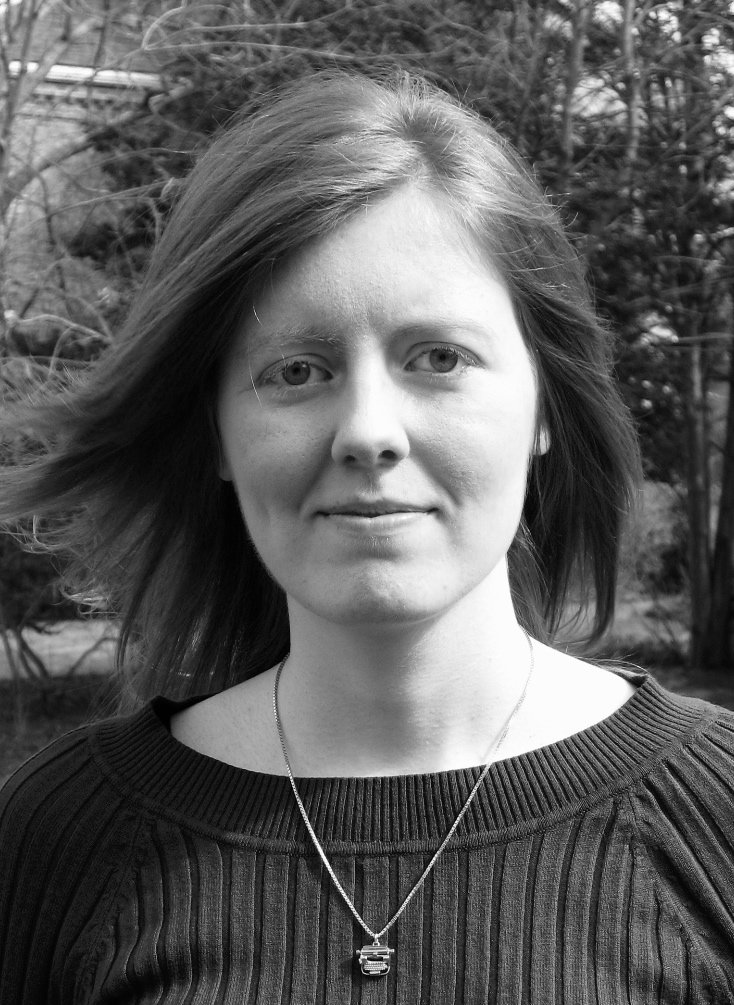 Blair Hurley is a graduate of Princeton University, with a B.A. in English and Creative Writing. She recently earned her M.F.A. from NYU’s Program in Fiction. Her short stories have been published or are forthcoming in Hayden’s Ferry Review, Descant, Green Hills Literary Lantern, The Red Rock Review, The Best Young Writers and Artists in America, and elsewhere. She is the recipient of an “Emerging Writers” Fellowship from the Writer’s Room of Boston.
Blair Hurley is a graduate of Princeton University, with a B.A. in English and Creative Writing. She recently earned her M.F.A. from NYU’s Program in Fiction. Her short stories have been published or are forthcoming in Hayden’s Ferry Review, Descant, Green Hills Literary Lantern, The Red Rock Review, The Best Young Writers and Artists in America, and elsewhere. She is the recipient of an “Emerging Writers” Fellowship from the Writer’s Room of Boston.
